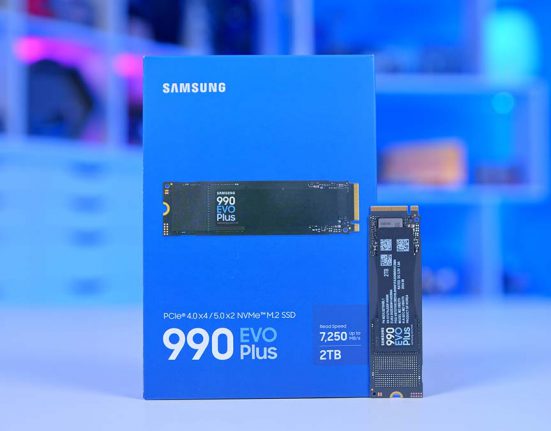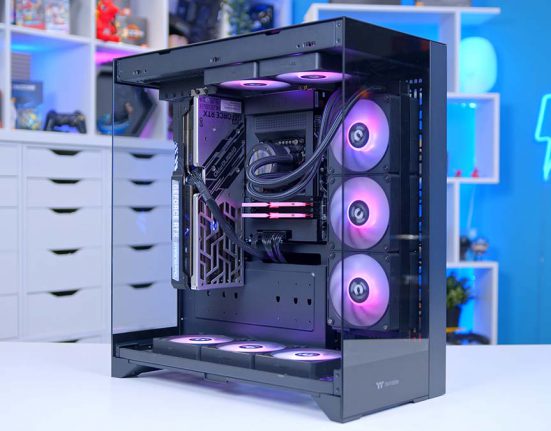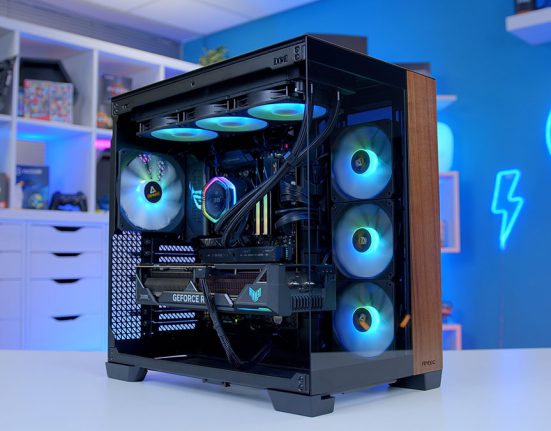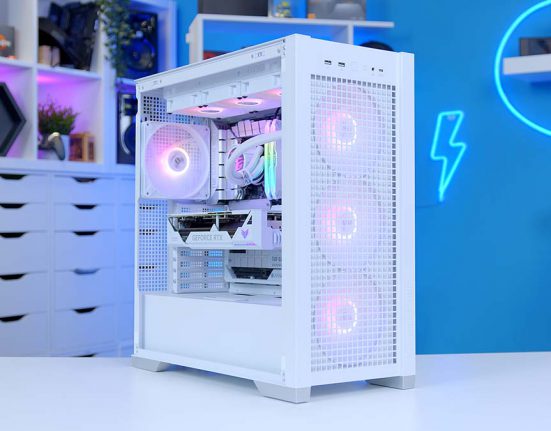The Samsung 9100 Pro is a Gen5 NVMe 2.0 M.2 SSD, and we have the 8TB capacity model that has just been released. Samsung claims that this drive can reach read and write speeds of up to 14,800/13,400MB/s, so we will put it to the test to see just what it is capable of and evaluate whether it is worth purchasing. We will review our testing records for other capacities and previous generations to demonstrate the differences and benefits you can expect from choosing this new drive. This is the first 8TB Gen5 M.2 we’ve tested, and these are the highest speeds we’ve seen advertised on the market yet.
Specification
The Samsung 9100 Pro is built on the latest generation PCIe Gen5, whereas the previous family, the Samsung 990 PRO, uses the Gen4 architecture, making this SSD approximately twice as fast as its predecessor. The Samsung 9100 Pro offers four different storage capacities ranging from 1TB to 8TB, ensuring that you will have enough storage for tasks such as gaming or 8K video editing.
Samsung has tried and tested their M.2 with some applications, ranging from games to AI LLMs, and they state that some games require enough capacity to install games that are 130GB in size, like Black Myth Wukong or Grand Theft Auto VI, where over 700GB is estimated to be required to install. As games and software continue to grow in size, it’s clear that storage demands will only keep increasing.
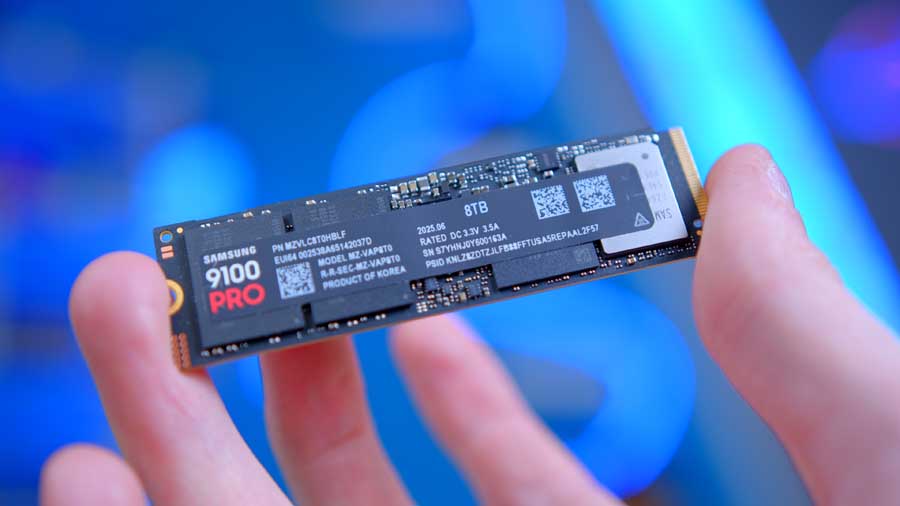
This storage drive has optimisations for loading AI. It features high-performance storage, supporting the loading of larger AI models integrated into operating systems, such as Microsoft’s Copilot, and for creative applications like Photoshop’s generative AI. The high random read and write speeds of up to 2,200/2,600 KIOPS further enhance responsiveness for these workloads.
| Specification | Samsung 9100 Pro |
|---|---|
| PCI-E Generation | Gen5 |
| Capacity | 1TB 2TB 4TB 8TB |
| Sequential Read Speed | 1TB, 2TB: 14,700MB/s 4TB, 8TB: 14,800MB/s |
| Sequential Write Speed | 1TB: 13,300MB/s 2TB, 4TB, 8TB: 13,400MB/s |
| Warranty | 5 years |
| Endurance | 1TB: 600TBW 2TB: 1,200TBW 4TB: 2,400TBW 8TB: 4,800TBW |
| Form Factor | M.2 2280 |
There is only a slight disparity between the read and write speeds for the different storage capacities, which is to be expected, and the discrepancy is minimal. According to Samsung’s marketing, you won’t be sacrificing performance by choosing the 2TB, 4TB or 8TB drives as the writing speed is predicted to be the same 13,400MB/s, and the reading is super fast for all three with a predicted speed of over 14,700MB/s. As of August 2025, this SSD is one of the fastest on the market, making it a close second to the WD_BLACK SN8100 with up to 14,900MB/s read speed and up to 14,000MB/s write speed. This puts into perspective just how quick the 9100 Pro series is. This drive is also supposed to be able to withstand temperatures of up to 70 ℃, which can be significantly mitigated with the heatsink add-on. Thermal toleration is an essential factor to consider, as high temperatures have negative impacts on both the lifespan and real-time performance of major components.
Samsung offer a five-year limited warranty, a standard warranty allowance. The warranty covers up to the maximum TBW (terabytes written) value, whichever you reach first. The endurance rating for the 8TB is double that of the 4TB, and if you refer to the table above, you’ll notice that this applies to each capacity.
Samsung 9100 Pro Design
The Samsung 9100 Pro is a standard M.2 2280 SSD (22 mm × 80 mm). It requires a motherboard with an M.2 slot supporting PCIe 5.0 x4. The drive is backwards compatible with PCIe 4.0 and PCIe 3.0 slots, but performance will be limited to the maximum bandwidth of the respective interface. While it may look the same physically, the 9100 Pro stands out with Samsung’s integrated, on-board custom controller, architecture, and support for PCIe Gen 5, delivering significantly higher speeds and efficiency compared to previous generations.
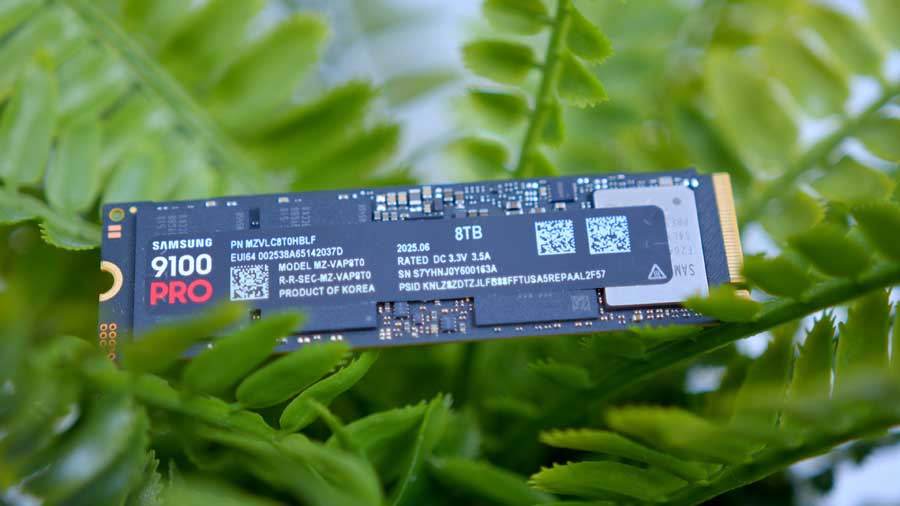
You can purchase it with or without a heatsink, and it’s designed to fit inside a PS5 with the heatsink attached, thanks to its slim 11.25mm thickness. If you purchase the heatsink model, it comes preinstalled. However, it is worth noting that you should be careful not to overtighten it, as this can break the M.2. Completely removing it can also damage the drive and, worse, void your warranty. For further heat dissipation, a heat spreader label is integrated on board, ensuring that heat is distributed evenly across the PCB rather than concentrated in one area, which could cause damage easily.
Thermals against Performance
One major drawback of buying a heatsink with an M.2 is that it tends to increase the drive’s price by around $40. Additionally, most motherboards come with included heatsinks that sit on top of the mounted drive. However, the heatsink designed for the SSD will likely be more efficient at dissipating heat than a generic heatsink.
Thermals
During our series of tests, we found that temperatures reached 66 ℃ at 100% utilisation, and this was without a heatsink (this is a control variable for a fair scientific environment). Can you imagine what it would have been like with a heatsink? We did, however, notice a rogue result where, at one point, the temperature reached 68 ℃ while at 89% utilisation. I can only theorise that this was because the drive had a little more time to warm up, as it was on the second test. Either way, these results are within the temperature threshold and are acceptable even without extra parts to keep it cooler. Just remember that heat adds strain.
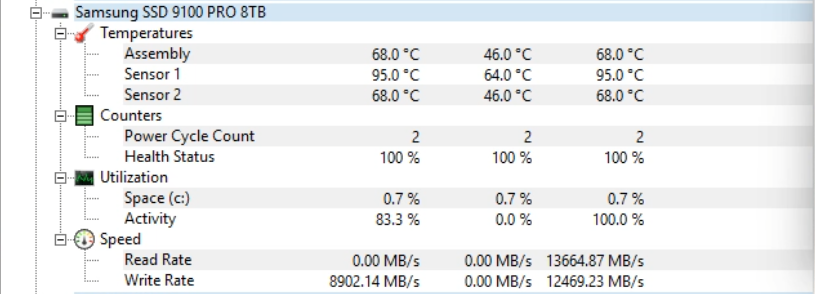
Performance
Here at GeekaWhat, we use an application called CrystalDiskMark to fact-check whether the figures advertised for reading and writing speeds are genuine in a realistic gaming PC setup. After five minutes, it returned readings conducted when the drive was in various performance stages. On average, the Samsung 9100 Pro 8TB offered 14201MB/s on the reads and 13058MB/s on the writes. This is the highest sequential read speed we’ve seen yet; however, Samsung claims it can reach up to 14,800MB/s. Although it doesn’t quite meet the proclaimed speeds, the difference is incredibly minor, and it’s virtually living up to expectations. The graph below indicates just where the performance for this SSD sits against other SSDs for read speeds, and we’ve also highlighted the other capacities to make it more straightforward to differentiate between.
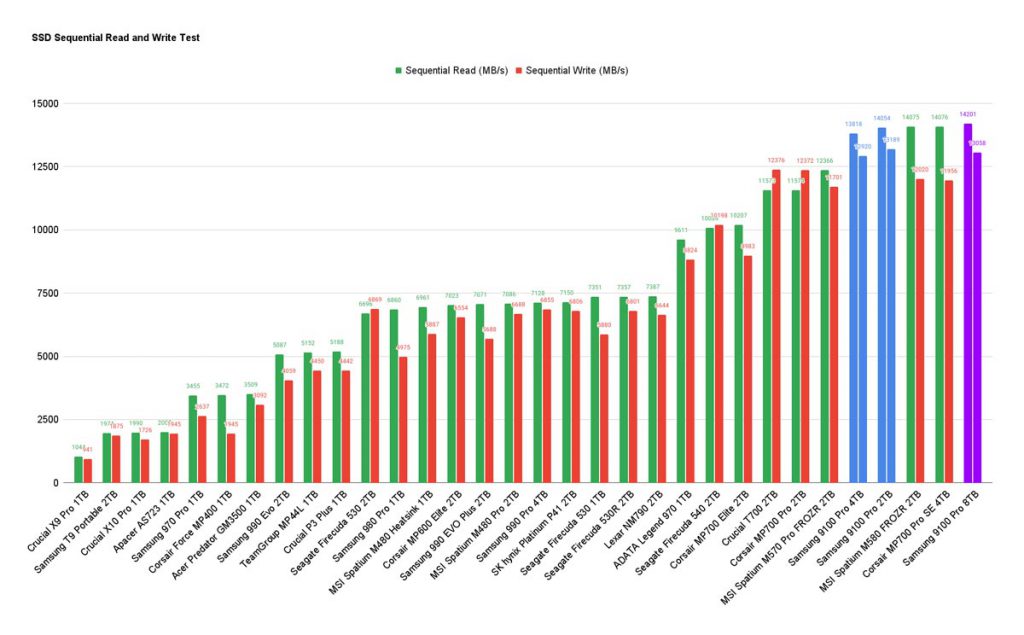
Below is the bar chart illustrating the performance differences between the 2TB and 4TB versions and the 8TB against the other SSDs we have tested, explicitly focusing on write speeds. When compared to the lower capacity versions, it is clear that one of Samsung’s priorities was maintaining high bandwidth transfer. The three SSDs we tested have performed exceptionally well, consistently ranking as the highest among the SSDs we have tested in either sequential read or write performance.
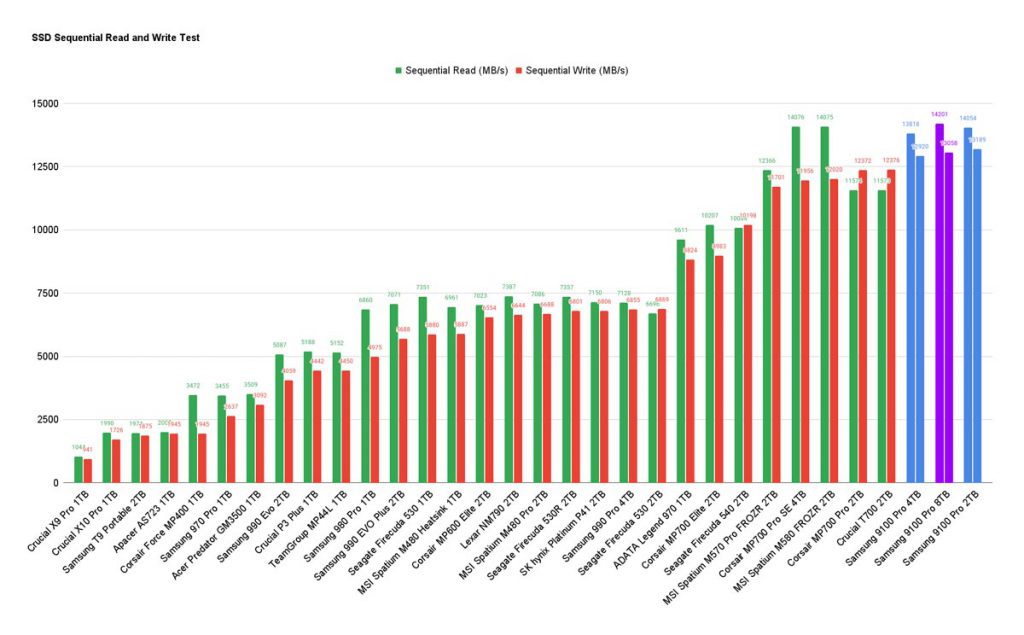
For the time being, the Samsung 9100 Pro family reigns supreme on the market in terms of overall performance, coming close to other current Gen5 SSDs like the MSI Spatium M580 FROZR 2TB and Corsair MP700 Pro SE 4TB for sequential reading speeds of around 14075MB/s and an average of 11,988MB/s in sequential writing speeds from our records.
Conclusion
Samsung 9100 Pro
Product Name: 9100 Pro 8TB
Brand: Samsung
-
Design
-
Thermals
-
Performance
-
Value For Money
Summary
Overall, I am impressed with this M.2; you get 8TB and excellent performance. It also achieves a similar performance to its sister SSDs with 2 TB or 4 TB of storage, which is unexpected, as with storage highs of 8TB, you will typically lose out on parallelism. For Samsung to maintain this performance against its other capacities for this series and even surpass other competitors, it shows that they engineered a truly efficient component. In my own experience as an avid gamer and typical PC user, 8TB of space isn’t necessary just yet; 2TB or even 4TB is enough to get you by comfortably. The general price of 8TB is also not very welcoming, coming in around the $800 mark. You can purchase a well-performing GPU for that price. My opinion is that with motherboards offering multiple x4 slots and now even multiple Gen5 x4 compatible slots, storage is easily expandable, so if, like me, you cannot warrant spending this much on an 8TB drive, I support you. There’s also the fact that if the drive becomes corrupted by chance, you’ll lose $800 and potentially up to 8TB of data, whereas splitting your storage components is more cost-effective to replace individually and less risky. However, if you need extra space for other reasons, it is understandable and justifiable.
Pros
✅ High performance without compromise
✅ Remarkable long-term endurance
✅Gen5, and backwards compatible
✅ Great thermals
Cons
❌ Predictably expensive
❌ Not much seems to have physically changed between the 990 PRO and the 9100 Pro


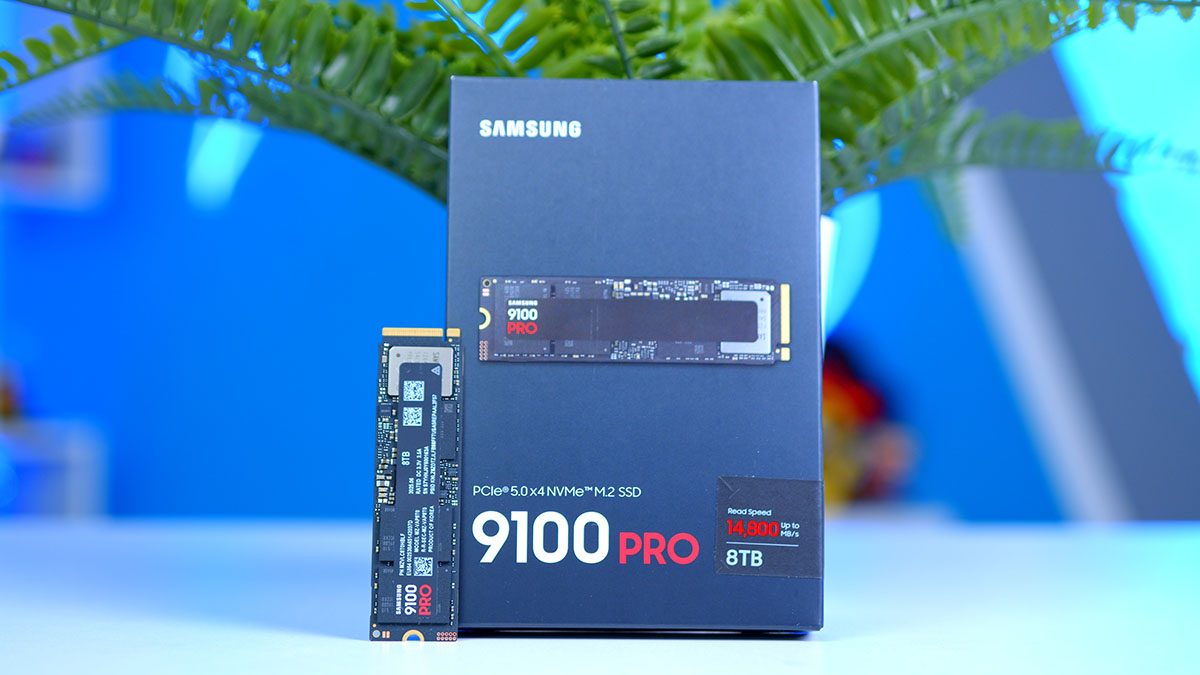
![FI_ [DP040] main image - GeekaWhat FI_ [DP040] main image](https://www.geekawhat.com/wp-content/uploads/2025/08/FI_-DP040-Gallery-2-551x431.jpg)
![FI_[DP043] Montech HS02 Pro + RTX 5080 - GeekaWhat](https://www.geekawhat.com/wp-content/uploads/2025/08/FI_DP043-Montech-HS02-Pro-RTX-5080-551x431.jpg)
